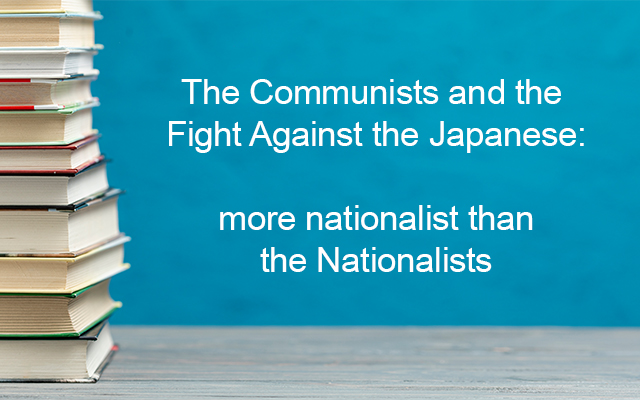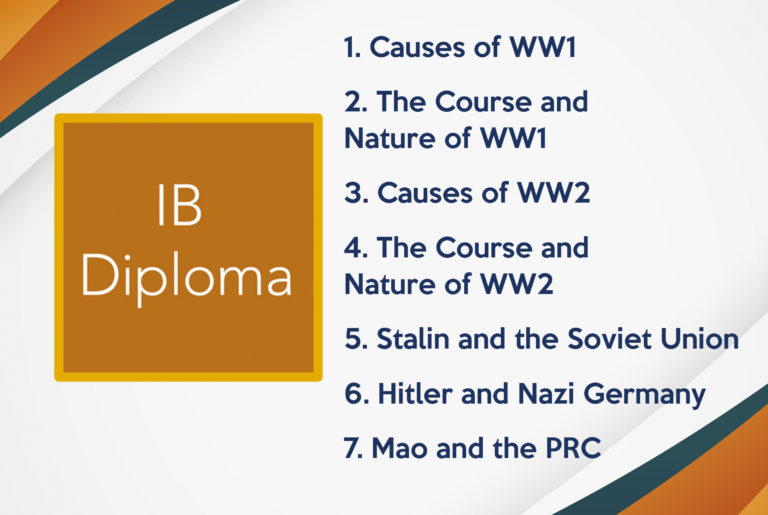The Significance of the Long March
Originally referred to as the ‘strategic transfer,’ the “Long March from southern Jiangxi in south-east China to Yan’an near the Great Wall of China in the north-west is undoubtedly the stuff of legend. And indeed, that is what it became. One day Hollywood may shake off its own ideological chains and make the movie, and it would be difficult to exaggerate its epic proportions. Michael Lynch describes its epic proportions in geographical terms (as well as taking into account military factors and human cost):
6,000 miles [10,000 kilometres] covered
11 provinces crossed
18 mountain ranges crossed
24 major rivers crossed 1
To this one could add the grasslands that were crossed, but also the weather that had to be contended with: strong winds, rain, hail, snow and scorching heat. The lack of food and inadequate clothing. Illness too. The whole thing took a year and four days, from October, 1934 to October, 1935. Think about your experiences on school outward bounds trips. And add the constant harassment by Goumindang troops and the armies of warlords (which I’m guessing you didn’t have to contend with). You will, I trust, appreciate that survival was itself a major achievement.
All of which led Edgar Snow, the American journalist who spent time with Mao in Yan’an in the middle of 1936, to claim it as ‘an Odyssey unequalled in modern times.’2
However, it was also something of a myth. Like Dunkirk for the British, disastrous defeat was turned into glorious victory. At Jiangxi, the Communists had resisted the Guomindang armies in four ‘encirclement and annihilation’ campaigns between 1930 and 1933 but the ‘blockhouse’ strategy deployed in the fifth encirclement campaign stretched the Communists’s economic and military resources to breaking point. Abandoning the local population who had supported them meant leaving them defenceless against the brutal reprisals inflicted by the Guomindang armies, a heavy political defeat for the Communists.
And of the 80,000 comrades who had set out (which included only 35 women), fewer than 5,000 survived to reach Shensi province in the north of China. Women and children had to be left behind, amongst them two of Mao’s children, left with sympathetic peasant families but never seen again. Mao also lost a brother who was also left behind to fight a rear-guard action against the closing Guomindang troops. Such was the frenzy of the Nationalist’s retribution that it was said not a tree was left standing in the area that didn’t have a victim’s body hanging from it.
However, myths are important to nations, and as Maurice Meisner makes clear, the Long March was profoundly important. It had tremendous positive psychological and political significance for the Communists. The psychological effect was deep and would continue to have a profound effect on events right up to Mao’s death. To begin with, the experience of the march reinforced Mao’s personal faith that proper will, spirit and consciousness could conquer all obstacles; that the Communists ideas and ideals would overcome all. Virtues of unending struggle, heroic sacrifice, self-denial, diligence, courage and unselfishness were values espoused not by Mao alone but carried and conveyed by all the veterans of the Long March. They had been essential to their survival and to the survival of the revolution, and they would lie at the heart of what later came to be celebrated as “the Yan’an spirit.” Mao himself regarded the march as ‘a manifesto … a seeding machine…. It has sown many seeds in 11 provinces, which will sprout, grow leaves, blossom into flowers, bear fruit and yield a crop in the future.’3
For those who survived the ordeal, as well as for those who were inspired by it, the experience gave rise to a sense of hope and a deepened sense of mission. As already noted, the significance is not lost on Meisner: ‘More than any other event in the history of Chinese Communism, it was the Long March – and the legendary tales to which it gave rise – that provided this essential feeling of hope, the confidence that determined people could prevail under even the most desperate conditions. And more than any other individual, it was Mao Zedong who radiated and inspired this faith in the future.’4
At the same time, the deaths of so many comrades lent a sacred character to the revolutionary mission. There was now an unbreakable commitment to carry on the struggle. Whilst for Mao, the experience undoubtedly contributed enormously to the perception of himself as a man of destiny. For the revolution did indeed take on a sense of mission, a sense of historical destiny like that felt by Hitler and amongst the more zealot of Nazi Party members in Germany in the 1930s.
What is more, the mood in the country was beginning to baulk against Chiang’s policy of appeasement. In the summer of 1935 the Japanese had forced the Guomindang government to withdraw troops from Beijing and Tianjin; to remove provincial officials considered hostile to Japan; and to declare a ‘goodwill mandate’ expressly forbidding public expressions of anti-Japanese sentiment. It was yet another humiliation for the Chinese to accept and they resented Chiang’s willingness to comply. This could be contrasted to the fighting spirit of the Communists who when they arrived and settled at Yan’an, turned it into an anti-Japanese base.
The single most important political effect, however, and indeed the most important historical effect, was that during the march Mao achieved effective control of the Chinese Communist Party (the CCP) and enough of the army to pursue his own revolutionary strategy. Mao had been ousted from positions of power whilst at Jiangxi in October 1932 following bitter disputes as to how best to use their base in the fight against the Nationalists and for the next two years he would be politically isolated as he had never been before. At this point power was firmly in the hands of a troika or three-man group consisting of Bo Gu, acting Party leader, Zhou Enlai, Political Commisar of the Red Army, and Otto Braun, the German military adviser sent by the Comintern, though all three were in fact very much under the influence of the Comintern. Mao did regain some power with regard to “domestic” matters, i.e. the running of the Chinese Soviet Republic but he was excluded from military decision-making of any significance. And at that time, and for some time to come, that is what mattered most.
On the march, however, it could be seen that the Comintern-backed leadership, back in Shanghai as well as at Jiangxi, had repeatedly made the wrong decisions, whilst Mao had been proven right. A series of three meetings as the march was still in its early stages, took power away from the troika but it was the enlarged meeting of the leadership at Zunyi, set to review past strategies and determine what had gone wrong, as well as to plan for the future, that was to change things significantly. Indeed, it was this meeting that, as things turned out, was to be of the upmost significance in the history of the CCP and of China. For Mao it was an opportunity to discredit the troika once and for all, completing his own rehabilitation in the process, take control of the Red Army and so, position himself to take control of the Party.
Bo Gu spoke first at the Zunyi meeting and admitted that the strategies employed in the last days at Jiangxi and in the early stages of the ‘strategic withdrawal’ had been unsuccessful but put the plight facing the Communists down to the nationalist’s overwhelmingly strong position, including the support it had received from the imperial powers, and too, the difficulties in linking up with other Communist base areas, rather than to any mistakes on the part of the troika. Zhou spoke next, acknowledging mistakes but refused to accept that the troika’s overall strategy had been wrong.
Mao criticised Bo Gu and his political leadership and Otto Braun and his military tactics; Zhou Enlai, he knew, was in too strong a position to attack at this point. Mao contrasted the successes achieved by his ‘flexible guerrilla strategy’, a war of movement ‘luring the enemy’ into areas where they would be vulnerable, with the failure of the troika’s strategy of defending fixed positions, building blockhouses (strong bases) to counter the Nationalists blockhouses, thereby ignoring the Red Army’s strengths and playing into the hands of the Nationalists strengths by inviting mass assaults. He alluded to Braun’s domineering style too. Some of the others took the side of the troika but the ground commanders, whose men had paid a heavy price in carrying out the troika’s commands, were firmly on Mao’s side. Otto Braun, for his part, claimed that he had only been an adviser, the decisions were those of the CCP’s leadership, not his.
On the second day of the meeting, Zhou, in a tactical retreat, admitted that the military strategy had been a mistake and he made a lengthy self-criticism. The resolution that concluded the game-changing meeting laid the blame clearly at the ‘bad leadership’ of Bo Gu and Braun. Zhou avoided criticism, but he would for ever more be associated with his colleagues in the troika. Mao was given a position in the Politburo as Zhou’s chief military adviser. Later, a Front Headquarters was established with Mao as Political Commissar, and a little after that a new troika was established that included both Zhou and Mao, with Mao the uncontested leader of the Red Army.
So it was at Zunyi, in January 1935, some three months into the march, that for the first time Mao was recognised as a dominant force in the Party simply by the fact that he had been proven right whilst Bo Gu, Zhou Enlai and Otto Braun were shown to have been wrong. The policies driven through by Bo Gu and Otto Braun, with Zhou Enlai ultimately supporting them, had brought near-total disaster on the Communists.
Mao’s leadership on the Long March was proven to be effective so that at the end of the march the Communists were in a position – just – to fight the Japanese and the Nationalists, and to mobilize Chinese nationalist sentiments for both patriotic and revolutionary ends. The successful completion of the Long March was testimony not only to the validity of the Communists mission, but also the policies and wisdom of their leader, Mao Zedong. Indeed the cult of Mao was born out of the Long March.
1 Michael Lynch, Mao, p. 86
2 Quoted in Michael Lynch, p. 86 + Maurice Meisner, Mao’s China And After, p. 33
3 Quoted in Michael Lynch, p. 87
4. Maurice Meisner, p. 35





